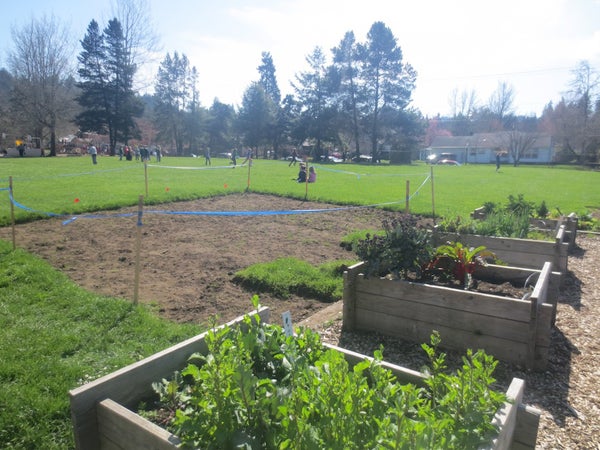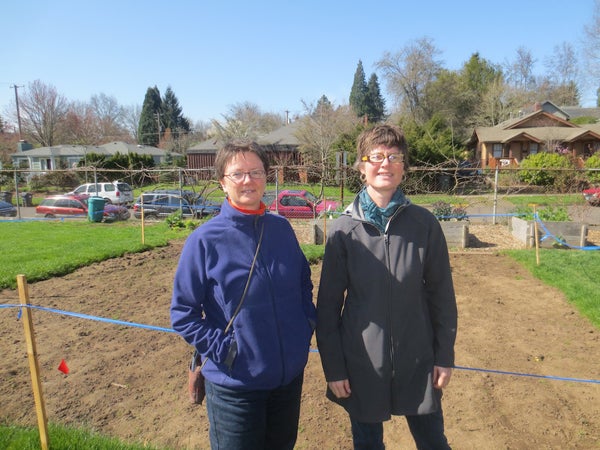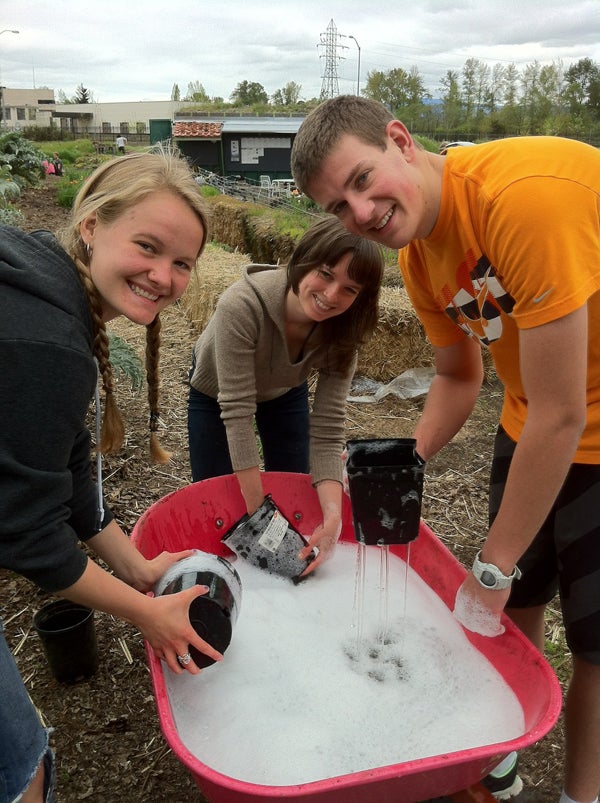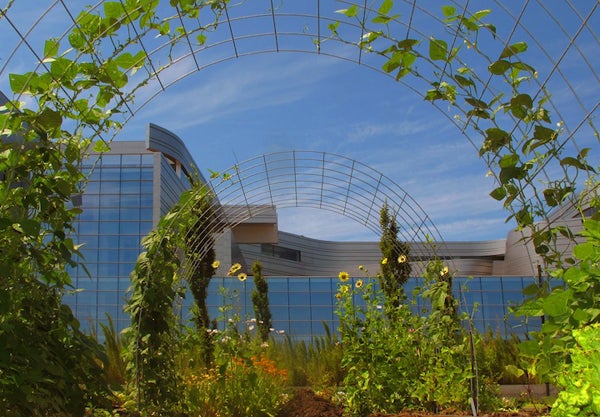A small garden plot in the corner of the Edison Elementary School playground marks the beginning of a collaborative relationship between the UO Service Learning Program and Edison’s K-5 students. The Schoolhouse Garden project will provide students hands-on opportunities to think critically about their natural surroundings, from measuring plant growth to selling the produce back to the school cafeteria.

“It’s about teaching children about the world they live in,” says Tom Horn, principal at Edison. Edison students will learn about food justice, nutrition, and sustainability practices while bringing lessons in science, math, language arts, and social studies to bear on their work in the garden.
Lorri Nelson and Robin Seloover, the UO faculty members overseeing the garden, are excited to launch a new gardening project to benefit the greater community. The service garden, which began in April, will offer elementary and college students the chance to learn about environmental, social, and political problems facing the world today.
“People love to come out and start a garden from the ground up,” says Seloover.
The class offers four credits to twenty UO students through the Service Learning Program in the College of Education. The curriculum covers hunger and food insecurity, sustainable food practices, best practices in school gardens, and landscape design and execution. The class is open to students from all disciplines interested in getting their hands a little dirty.
Horn sees the garden as an opportunity to reconnect students with their natural surroundings and contribute to a well-rounded education that includes sustainability and ecology.
“We’re teaching kids that they can change things,” says Horn. “They are actually learning to think critically.”

Edison is partnering with local farmers to organize a farmers market, where students will sell the garden’s produce back to the school kitchen. Classroom activities will involve multiple aspects of the garden, from planning the garden, measuring plant growth, and analyzing soil, among other scientific research methods. Fresh produce will also be donated to the Eugene Mission.
The Schoolhouse Garden is a project independent from previous gardens that partnered UO students with community members. “It’s an entirely different project because we are working with an elementary school,” Nelson says, “but our mission of bringing people together and offsetting food insecurity stays the same.”
The concept of a service garden is not new for Nelson and Seloover. The two began the Courthouse Garden in 2010 as a way to help prison inmates re-enter society while giving UO landscape architecture students practical experience. The two-acre garden near the Federal Courthouse in Eugene served as a hands-on teaching and skills-building project, producing organic food for organizations including the Eugene Mission, Relief Nursery, New Roads Looking Glass, and HIV Alliance. The City of Eugene sold the plot last fall, ending the three-year collaboration between the UO and the Federal Re-entry Program.
UO senior Jaime Perez has been dedicated to service gardens since 2011. “My experience with the Courthouse Garden has been truly inspirational and motivational,” says Perez, “beyond any other course I have taken at the university.”
Perez nominated Nelson and Seloover for the Dr. Martin Luther King Jr. Award for their efforts on the Courthouse Garden. Sponsored by the UO Office of Equity and Inclusion, MLK Awards recognize UO personnel whose contributions to the campus community extend beyond typical job expectations and exemplify ideals supported by King. The two were presented the award in January.
“Anyone who can take an abandoned lot and convert it into a service garden is worthy of an award,” says Perez. “It was truly the space and atmosphere that made it worthy of an MLK award.”

Nelson and Seloover hope the Schoolhouse Garden continues to provide UO students with opportunities to address a community need and actively do something about it.
“These are the transformative experiences that lead students to lifelong service in our communities,” says Nelson.
Schoolhouse Garden (4 credits, FHS 409) is offered every spring, summer, and fall term.

Story by Cari Johnson
